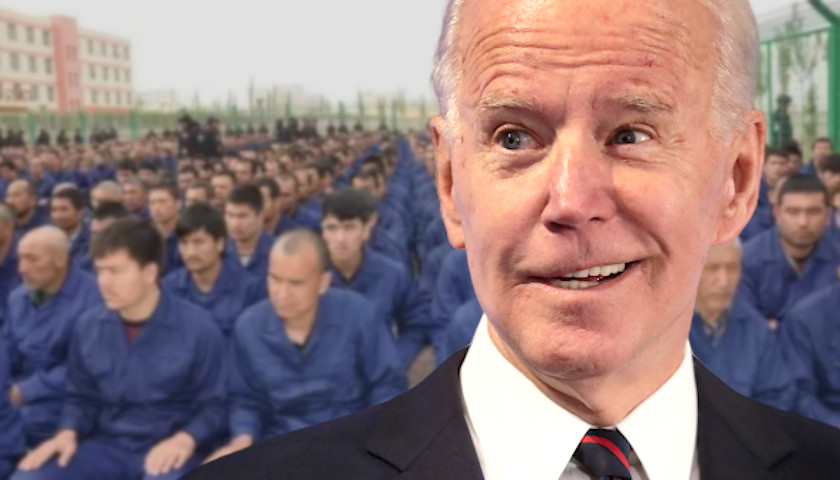by Marco Rubio
Slavery has been illegal in the United States for nearly 160 years. And yet, over the past two decades, American businesses and consumers have once again begun to benefit from the horrific practice.
It’s an extremely uncomfortable truth, and for most Americans, it likely comes as a surprise. Until recently, they probably had no idea that the clothes they wear, the phones they cannot put down, and the solar panels on their roofs were made, in part, by slaves. The same cannot be said of the companies that eagerly ship jobs overseas to China and source materials from concentration camps.
Thankfully, all of that is about to change. Starting on June 21, U.S. Customs and Border Protection will block any company seeking to import goods mined, produced, or manufactured, either in whole or in part, by Uyghurs and other persecuted ethnic groups – unless the company can provide conclusive evidence that no forced labor was used at any point in the international supply chain. It is a high burden of proof, but it is necessary given the lack of transparency in China and America’s unwillingness to enforce a 1930 law prohibiting the importation of goods made by slaves.
The implementation of the Uyghur Forced Labor Prevention Act, which I led with Sen. Merkley and Reps. McGovern and Smith, will also be the most significant change in America’s relationship with China since 2001, when the communist nation joined the World Trade Organization.
In 2001, America’s elites – politicians, public intellectuals, and businesspeople alike – believed free trade would make China more like the West. But the truth is that capitalism didn’t change the Chinese Communist Party; the communists changed capitalism. Over the decade that followed, our companies began shipping jobs overseas, enabling intellectual property theft, profiting from slave labor, and excusing totalitarianism as a form of tough love.
But with the UFLPA, we sent a message to the world that the United States will no longer ignore the most horrific atrocities of the 21st century. No longer will we look at images of bareheaded prisoners in shackles and blindfolds, lined up like animals for slaughter, and shrug. No longer will we profit from the abduction and enslavement of children as young as 15 because it is what the “free” market dictates.
This proclamation is already sending shockwaves through the global economy, but enduring change will only come from its rigorous and thorough enforcement. That puts CBP on the front lines of the fight against modern slavery. The agency must ensure that suspect entities and all companies operating in Xinjiang provide the “clear and convincing evidence” required by law. There can be no exceptions, no relaxation of standards, and no willful ignorance.
If our customs agents enforce the UFLPA strictly, they will protect American consumers from unknowingly sending their hard-earned money to companies that use forced labor. Other countries may even follow America’s ethical leadership in an effort to end state-sponsored slavery.
But we cannot take that outcome for granted. The Biden administration is under immense pressure from nationless corporations and the regime in Beijing to find loopholes and carve-outs that would effectively gut the new law. For example, CBP is under pressure to limit its detention of goods, particularly solar and cotton, to the smallest geographical region or sector possible.
My message to President Biden and his administration is simple: Understand the significance of this moment and strictly implement this law.
– – –
Marco Rubio, a Republican and senior U.S. senator from Florida, is chairman of the Senate Committee on Small Business and Entrepreneurship.
Photo “Joe Biden” by Gage Skidmore. CC BY-SA 2.0. Background Photo “Ugyhur Muslims” by the Uyghur Human Rights Project.








